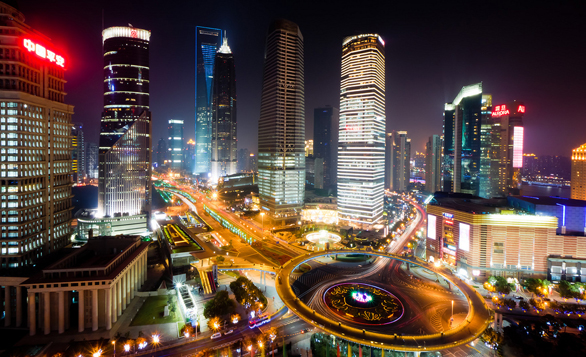
The Shanghai Financial District as seen from the Oriental Pearl. Photo: Sjekster
“When I was growing up, I was told a story that explained all I ever needed to know about humanity. It went like this,” says Eric X. Li in today’s provocative talk, given at TEDGlobal 2013. “All human societies develop in a linear progression, beginning with primitive society, than slave society, than feudalism, capitalism, socialism and finally — guess where we end up? — communism.”
 Eric X. Li: A tale of two political systems
Li, who grew up in Shanghai at the height of the Cultural Revolution, soured on this narrative when the Soviet Union fell. He packed up to study at Berkeley in the United States, where he absorbed the American narrative of how societies develop — always moving toward democracy in which citizens vote.
Eric X. Li: A tale of two political systems
Li, who grew up in Shanghai at the height of the Cultural Revolution, soured on this narrative when the Soviet Union fell. He packed up to study at Berkeley in the United States, where he absorbed the American narrative of how societies develop — always moving toward democracy in which citizens vote.
Now a venture capitalist based in Shanghai, Li questions the nature of the American story as much as he questioned the Chinese version. Those living under democracy, says Li, make the assumption that a one-party system concentrates power in the hands of a few and leaves no room for change. And yet, Li points out that in a span of 30 years, China went from one of the poorest countries in the world to the globe’s second largest economy, with a greatly expanded middle class. He looks at the unprecedented range of policies carried out by the Chinese Communist Party over the past 64 years and at its human resources engine, in which, ideally, those with the best academic and leadership records rise to the top leadership roles. He also points out that, in surveys, Chinese citizens report feeling very optimistic about the future of their country — which can’t be said about the United States and other democracies, where a cycle of “elect and regret” has developed. (See a TED Blog look at stats on government distrust.)
To hear more perspective-shifting insights into China’s political system, watch this talk — which Li says isn’t meant as a takedown to democracy but to help break through the stories that imply there is a right way to govern. “Metanarratives that make universal claims failed us in the 20th century and are failing us in the 21st,” says Li. “Let’s stop telling our children there is only one way.”
With China’s economic and social rise over the past few decades, it’s only natural that many TED speakers have offered insights to help increase understanding. Below, seven fascinating talks about China.
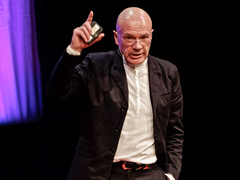 Martin Jacques: Understanding the rise of China
Martin Jacques: Understanding the rise of China
Martin Jacques: Understanding the rise of China Within a decade, China will have the largest economy in the world and by 2050, it’s predicted that its economy will be twice the size of the United States’. In this talk from TEDSalon in London 2010, economist Martin Jacques gives a framework for the West to understand the rise of this nation, whose long history gives an unusual sense of unity. |
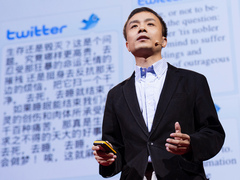 Michael Anti: Behind the Great Firewall of China
Michael Anti: Behind the Great Firewall of China
Michael Anti: Behind the Great Firewall of China The Chinese government tightly controls the internet — banning access to global resources. As a result, China has its own version of Facebook, RenRen, and its own Twitter, Weibo. Blogger Michael Anti looks at the fascinating way in which users of these services are using them to voice dissent and subtly shift the balance of power in unexpected ways. |
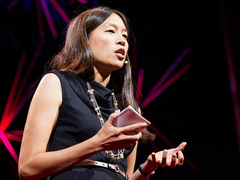 Leslie T. Chang: The voices of China's workers
Leslie T. Chang: The voices of China's workers
Leslie T. Chang: The voices of China’s workers In the West, people feel concern and even pity for the factory workers in China who labor in harsh conditions to bring them the products they value. But this sense of pity, says Leslie Chang, eliminates the voice of the workers themselves. In this talk from TEDGlobal 2012, Chang shares what she learned spending time with female factory workers in China, including their own perspective on their future. |
 Yang Lan: The generation that's remaking China
Yang Lan: The generation that's remaking China
Yang Lan: The generation that’s remaking China Often called the “Oprah of China,” journalist Yang Lan sees a young generation of Chinese citizens who are very different from their parents and grandparents — they are only children, they flock to cities, they are active on social media and they are highly concerned with social justice and government accountability. |
 Abigail Washburn: Building US-China relations ... by banjo
Abigail Washburn: Building US-China relations ... by banjo
Abigail Washburn: Building US-China relations … by banjo TED Fellow Abigail Washburn was on her way to study law in Beijing when she heard a Doc Watson song at a party. The song inspired her to bring a banjo with her to China. At TED2012, she tells the tale of how she now uses the instruments to fuse American and Chinese culture. |
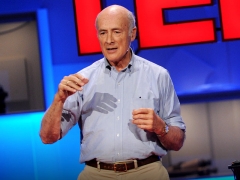 Joseph Nye: Global power shifts
Joseph Nye: Global power shifts
Joseph Nye on global power shifts The former U.S. assistant secretary of defense and dean of Harvard’s Kennedy School of Government, Joseph Nye discusses the big picture of global power shifts between China and the U.S. at TEDGlobal 2010. He looks at how subtle shifts between these two superpowers affects the rest of the world. |
 Liu Bolin: The invisible man
Liu Bolin: The invisible man
Liu Bolin: The invisible man Chinese artist Liu Bolin renders himself invisible against a background — with social purpose. In some images, he disappears into a grocery store shelf, in others he paints a group of laid-off factory workers into the wall of the building where they use to work. Bolin’s work gives subtle, beautiful commentary of the changing economy of his nation and the increasingly global nature of our world. |
Comments (7)
Pingback: TED Tuesday: The Success of Chinese Government | Consider, Reconsider
Pingback: 8 TED talks about China - Eye Like It
Pingback: Observations from The Middle Kingdom « TAB Blog
Pingback: Eric X. Li: A Tale of Two Political Systems - China Digital Times (CDT)